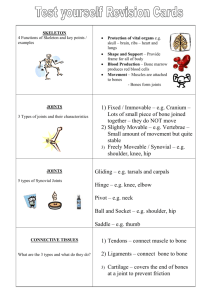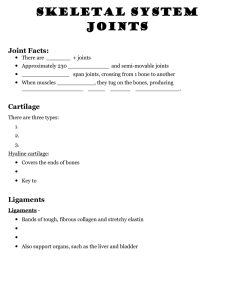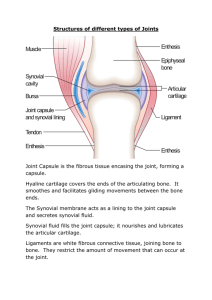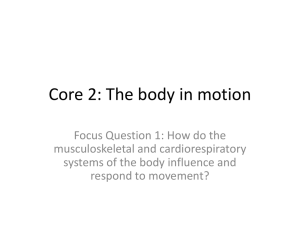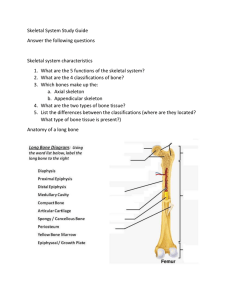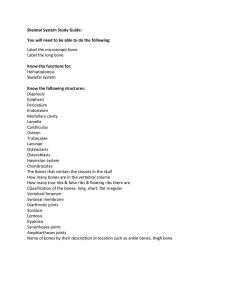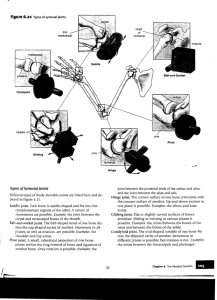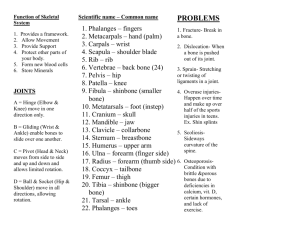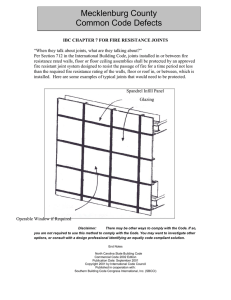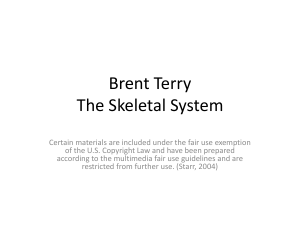Document 14109840
advertisement
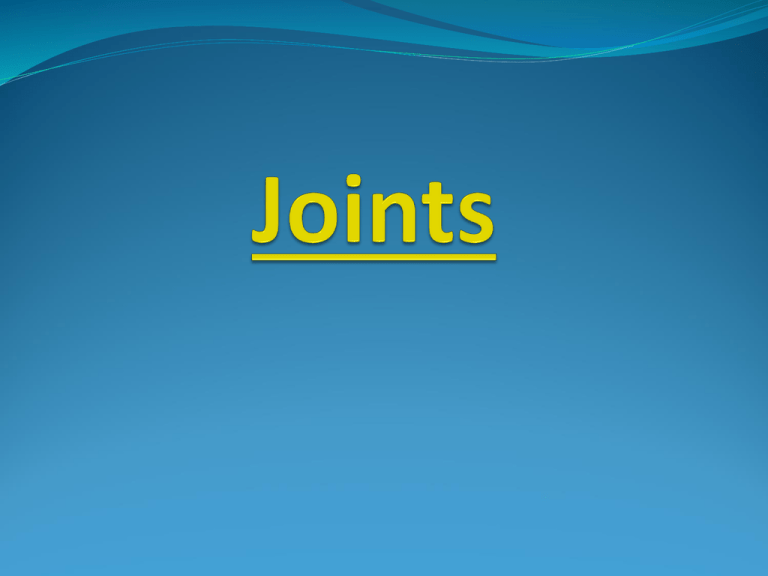
Is it Okay to Crack Your Knuckles? https://www.youtube.com/watch?v=TIBydD49-xM Joint Facts Joints - are places where two bones meet There are 400 + joints Approximately 230 movable and semi- movable joints Muscles span joints, crossing from 1 bone to another When muscles contract, they tug on the bones, producing movement at the joint Cartilage There are three types: 1. Hyaline 2. Fibrous and 3. Elastic Hyaline cartilage: Covers the ends of bones Cushions and reduces friction during movement Key to preventing wear and tear on joints Knee Joint Ligaments Ligaments - Connects bone to bone Bands of tough, fibrous collagen and stretchy elastin Bind joints to help strengthen and stabilize Permit movement in certain directions Also support organs, such as the liver and bladder Knee Joint Tendons Tendons – Connect muscle to bone. When a muscle contracts, it pulls on a tendon, which then tugs on the attached bone Also help stabilize joints Achillies Tendon Types of Joints Immovable - cranium Hinge – elbow, knee, jaw Pivot – head/neck, elbow Ellipsoidal - hand/wrist, foot/ankle Ball and socket – shoulder, hip Saddle – knuckles, thumb, wrist Gliding – hand, foot Joints continued…… Ligaments join with other connective tissue to form a joint capsule, enclosing the moveable joint The joint capsule is lined with a membrane that secretes synovial fluid, which acts as a lubricating substance Clinical Conditions Gigantism Childhood hyper secretion of growth hormone by the pituitary gland causes excessive growth. Tallest Man Ever: Robert Wadlow – 8 ft 11 inch Pituitary dwarfism Growth hormone deficiency in children resulting in extremely short long bones and maximum stature of 4 feet. Shortest man: http://www.usatoday.com/story/news/nation -now/2015/09/04/shortest-man-world-hasdied/71743044/
